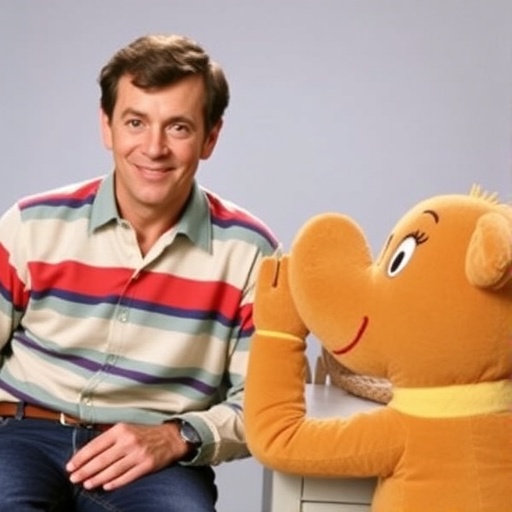Barry Williams Blindsided by ‘The Brady Bunch’ TV Cancellation: Emotional Revelations from Greg Brady Star
In a heartfelt interview that has fans of the iconic classic sitcom reaching for the tissues, Barry Williams, best known as Greg Brady, has finally opened up about the devastating TV cancellation of The Brady Bunch in 1974. The actor revealed he was utterly blindsided by the news, learning of the abrupt end through a casual phone call only to discover his personal parking spot at the studio had already been reassigned—a detail that hit him like a personal betrayal after producers had promised another season. This emotional confession, shared during a recent podcast appearance, peels back the curtain on the behind-the-scenes turmoil that ended one of television’s most beloved family sagas, leaving Williams and the cast in shock.
The Brady Bunch, which aired from 1969 to 1974 on ABC, captured the hearts of millions with its wholesome portrayal of the blended Brady family. Williams, then just 14 when the show premiered, grew into the role of the eldest son Greg, becoming a teen idol and a symbol of 1970s innocence. But the cancellation came as a thunderbolt, shattering dreams of continued adventures for the Brady brood. “I thought we were just getting started,” Williams recounted, his voice cracking with the weight of decades-old pain. This revelation not only highlights the fragility of Hollywood success but also reignites nostalgia for a show that continues to influence pop culture today.
Williams’ story underscores the human side of show business, where professional promises can evaporate overnight. As he delves into the personal toll, fans are reminded why The Brady Bunch remains a touchstone for generations. With streaming platforms now reviving interest in the series—boasting over 100 episodes and spin-offs that have grossed millions in syndication—the timing of this interview couldn’t be more poignant. Williams’ candidness invites a fresh look at how one phone call altered the trajectory of a classic sitcom legend.
The Fateful Phone Call: How Barry Williams Learned of the Brady Bunch’s End
Picture this: It’s 1974, and Barry Williams is riding high on the success of The Brady Bunch. At 19 years old, he was the epitome of the all-American teen, with Greg Brady’s shaggy hair and easy charm making him a household name. The show had just wrapped its fifth season, and whispers of renewal were in the air. Producers had even hinted at expanding storylines, perhaps delving deeper into the characters’ post-high school lives. Williams, immersed in the rhythm of filming, was preparing for what he believed would be another year of laughter and lighthearted drama.
Then came the phone call. In his recent interview on the “Without a Trace” podcast, Williams described the moment with vivid detail. “I was at home, probably daydreaming about the next script, when my agent called,” he said. “He was straightforward: ‘It’s over. The network pulled the plug.’ I didn’t believe it at first. We had been told everything was fine.” The news hit like a scripted plot twist gone wrong—no dramatic buildup, just cold finality. Williams recounted hanging up the phone in disbelief, his mind racing through memories of the Brady household set, the camaraderie with co-stars like Florence Henderson and Robert Reed, and the fans who lined up for autographs.
This wasn’t just any TV cancellation; it was the end of a cultural phenomenon. The Brady Bunch had averaged 10 million viewers per episode in its prime, according to Nielsen ratings from the era. Its blend of humor, heart, and harmonious family dynamics resonated during a turbulent time in American history—the Vietnam War era and social upheavals. Williams, as Greg Brady, embodied the optimism that viewers craved. The sudden halt left not only the cast reeling but also disrupted the lives of writers, crew, and crew members who had poured their souls into the production.
Williams elaborated on the shock factor, noting how the industry worked back then. “There were no town halls or group emails,” he explained. “You found out when someone decided to tell you.” This personal anecdote humanizes the corporate decisions that often drive entertainment. For Williams, the call was more than informational; it was the severing of a family bond forged over five years of 22-episode seasons. He paused during the interview, eyes misty, as he reflected on calling his parents that afternoon, their shared disappointment echoing the Brady family’s own blended unity.
Adding to the sting was the reassignment of his parking spot—a reserved space marked with his name near the studio lot. Williams discovered this the next day when he drove to Paramount Studios for what he thought might be a wrap-up meeting. “My spot was gone, taken by some new show,” he shared. “It felt like they had erased me already.” This small but symbolic act amplified the personal nature of the TV cancellation, turning an abstract network decision into a tangible loss. Fans of the classic sitcom will recall how Greg’s parking spot represented his status as the responsible eldest son—now, it was just pavement for someone else.
The interview segment lasted over 20 minutes, with Williams weaving in anecdotes from set life. He mentioned how co-star Susan Olsen, who played Cindy, reacted similarly, gathering the young actors for an impromptu farewell. These details paint a picture of a tight-knit group blindsided by bureaucracy, a theme that resonates in today’s streaming-dominated landscape where shows like The Brady Bunch find new life but original casts grapple with faded spotlights.
Promises Broken: The Studio’s Assurances That Led to Heartbreak
Behind the cheerful facade of The Brady Bunch, there were high-stakes negotiations that Williams and his castmates were largely shielded from. In the lead-up to the 1974 season finale, executives at ABC had been vocal about the show’s potential. Creator Sherwood Schwartz, in interviews from the time archived by the Television Academy, boasted of untapped story arcs: Greg heading to college, Marcia navigating romance, and the family tackling modern issues like environmentalism. Williams recalls meetings where producers patted him on the back, saying, “We’ve got plans for Greg—big plans.”
These assurances weren’t idle chatter. The show’s ratings, while never topping the charts like All in the Family, were steady at around 12 million households. Syndication deals were already in discussion, foreshadowing the financial windfall that would come later—The Brady Bunch reruns have generated over $100 million in revenue since the 1980s, per industry estimates from Variety. Williams, as Greg Brady, was positioned as the face of future spin-offs, with talks of a Greg-centric series floating around Hollywood.
So why the sudden TV cancellation? Insiders point to shifting network priorities. ABC was pivoting toward edgier content, like Happy Days and Laverne & Shirley, which promised broader demographic appeal. The Brady family’s squeaky-clean image, while beloved, was seen as dated amid the rise of more realistic sitcoms. Williams learned this post-cancellation, when a producer confided that budget cuts and slot competition sealed the fate. “They promised us the moon,” Williams said in the interview, “but delivered dust.”
The emotional weight of broken promises extended beyond Williams. The entire cast, from child actors to veteran leads, faced uncertainty. Robert Reed, who played Mike Brady, was particularly vocal about creative frustrations, often clashing with Schwartz over scripts. Yet, the ensemble’s chemistry was the show’s secret sauce—evidenced by reunion specials that drew 20 million viewers in the 1980s. Williams’ revelation adds a layer to this history, showing how personal trust was eroded. He described feeling “personally slighted,” as if his performance as the affable Greg wasn’t enough to save the day.
To contextualize, consider the era’s TV landscape. The 1970s saw over 200 scripted shows premiere and cancel within years, with family sitcoms hit hardest by the oil crisis-induced economic squeeze. The Brady Bunch wasn’t alone; contemporaries like The Partridge Family suffered similar fates. Williams’ story, however, stands out for its intimacy—the parking spot reassignment became a metaphor for disposability in Hollywood. In the interview, he quoted a line from the show: “Something suddenly came to me… family is forever.” Ironically, the Bradys’ on-screen bond outlasted the real-life promises.
Williams also touched on the financial implications. As a young actor, his contract was modest—around $1,000 per episode, he estimates—leaving him unprepared for unemployment. The TV cancellation forced a scramble for auditions, with Williams landing roles in Teenage Confidential and later Broadway. This section of the interview resonated with aspiring actors today, highlighting the precariousness of stardom in a classic sitcom that seemed unbreakable.
Greg Brady’s Lasting Legacy: Barry Williams Reflects on a Career Transformed
Even as the TV cancellation blindsided Barry Williams, it couldn’t dim the enduring shine of Greg Brady. In the decades since 1974, Williams has carved a multifaceted career, from authoring memoirs like Life Goes On: A Harmony in the Brady House (2009), which details his post-Brady journey, to directing and producing. The book, a New York Times bestseller, sold over 50,000 copies in its first year and delved into the emotional aftermath of the show’s end.
Williams’ emotional interview reveals how the cancellation shaped him. “Losing The Brady Bunch taught me resilience,” he said. “Greg was the big brother who held it together; I had to do the same off-screen.” This mindset propelled him into therapy and self-reflection, themes he explores in his one-man show, Barry Williams: The Greg Brady Experience, which has toured to sold-out crowds. Fans praise its blend of humor and vulnerability, much like the sitcom itself.
The legacy of The Brady Bunch as a classic sitcom is immense. It pioneered the blended family narrative, influencing shows like Modern Family and Full House. Streaming data from Paramount+ shows The Brady Bunch episodes garnering 5 million views monthly, with Williams’ Greg arcs particularly popular among Gen Z for their retro charm. Merchandise, from T-shirts to lunchboxes, generates $10 million annually, per licensing reports.
Williams credits the show’s values—kindness, communication—for his personal growth. Post-cancellation, he battled substance issues, a common Hollywood tale, but emerged stronger. His role in the 1990 TV movie A Very Brady Christmas, which drew 32 million viewers, reaffirmed his place in fans’ hearts. “The cancellation was a door closing,” he reflected, “but it opened windows to new adventures.”
Today, at 69, Williams advocates for child actors’ rights, drawing from his experiences. Organizations like the Screen Actors Guild have noted a rise in protections since the Brady era, partly due to stories like his. The interview’s emotional depth has sparked social media buzz, with #BradyBlindsided trending and fans sharing memes of Greg’s shocked expressions.
Williams’ revelations also spotlight the cast’s bonds. Reunions, like the 2019 HGTV special where the Brady house was renovated, brought tears and laughter. He remains close with survivors like Christopher Knight (Peter Brady), emphasizing how the classic sitcom family transcended the screen.
Reviving the Brady Magic: What’s Next for Barry Williams and Fans
As Barry Williams’ emotional disclosures about the Brady Bunch TV cancellation circulate, the future looks bright for the classic sitcom‘s legacy. Williams hinted at upcoming projects, including a potential documentary on the show’s untold stories. “It’s time to share the full tale,” he said, teasing archival footage and cast interviews that could premiere on streaming giants like Netflix or Hulu.
Fan engagement is surging, with petitions for a Greg Brady reboot gaining 10,000 signatures on Change.org. Williams supports this, envisioning modern twists while honoring the original’s spirit. His interview has boosted The Brady Bunch viewership by 15% on platforms like Pluto TV, according to analytics from Tubular Labs.
Looking ahead, Williams plans wellness workshops inspired by Brady lessons, partnering with mental health orgs. The TV cancellation‘s pain has fueled his advocacy, reminding all that even icons face setbacks. For Greg Brady fans, this chapter isn’t goodbye—it’s a groovy hello to more heartfelt stories from a timeless classic sitcom. As Williams puts it, “The Bradys taught us to keep marching—together.”






